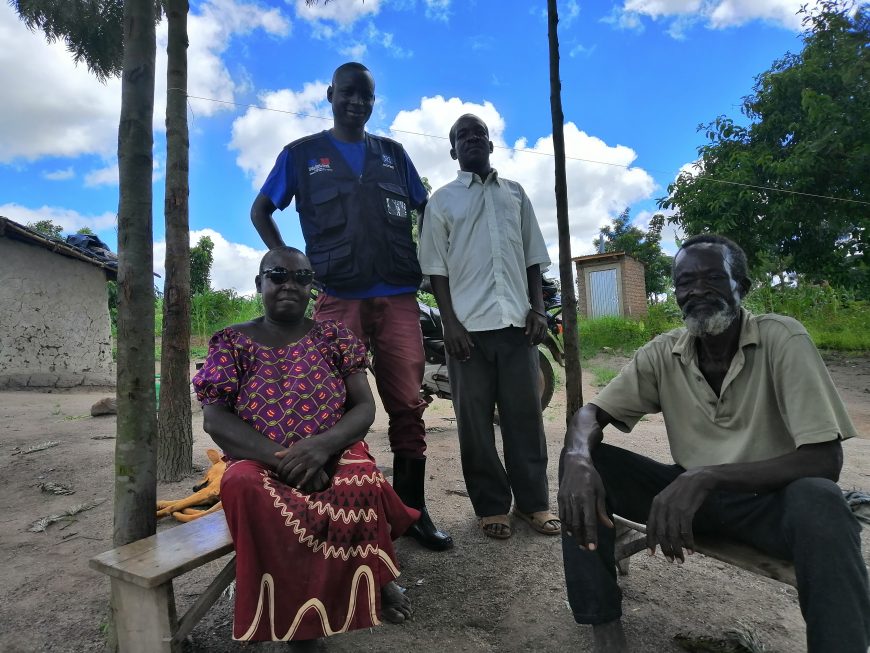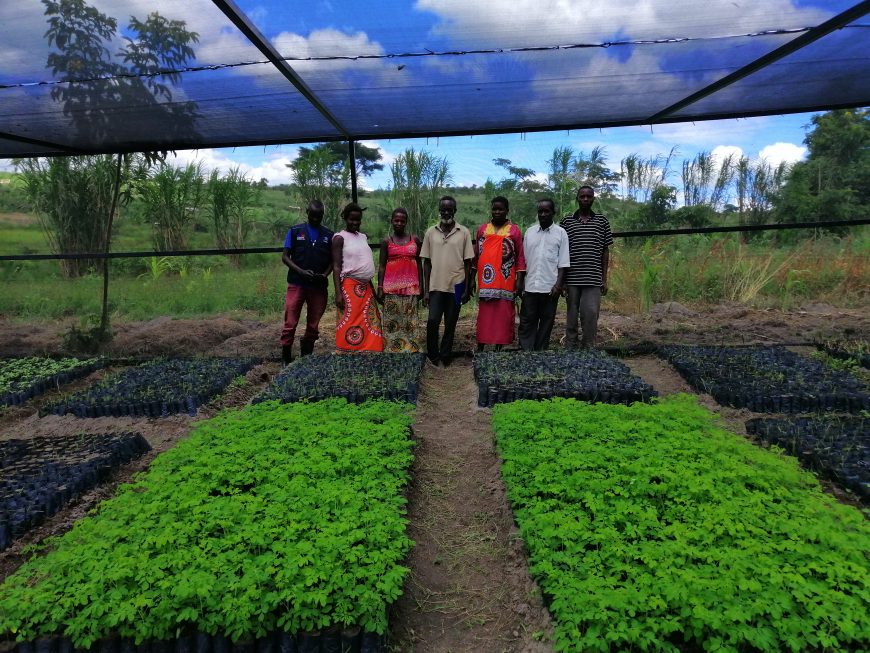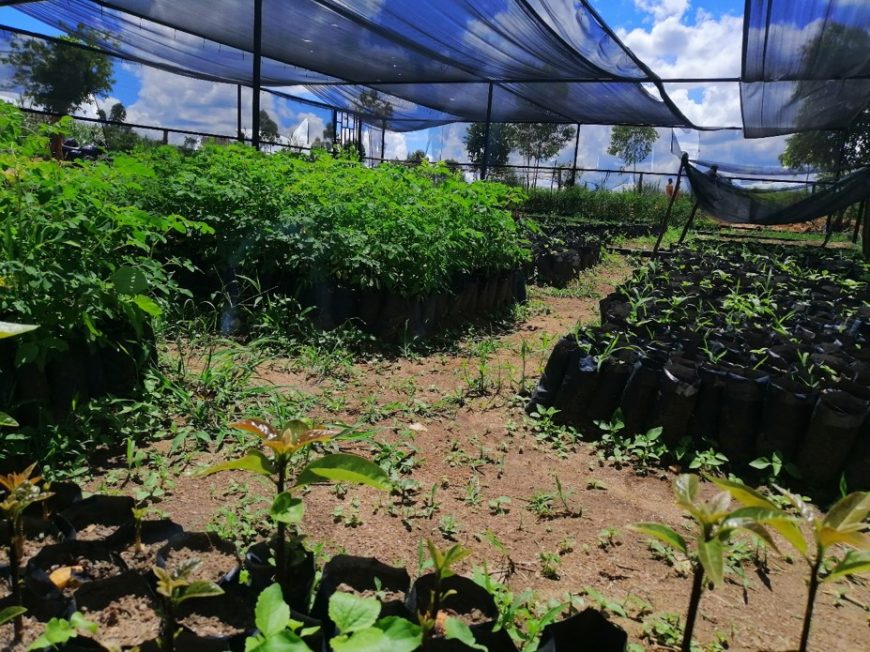For the tens of thousands of refugees who fled conflict in the Democratic Republic of Congo and reached safety in neighbouring Uganda, the next challenge is often to continue feeding your family given the scarcity of reliable work opportunities.
ACTED's action in Kyaka II refugee settlement has trained and equiped residents to establish tree nurseries. Managed by a community group comprised of male and female refugees, these nurseries have had a significant impact upon life in the settlement, with sales of the trees providing income for residents and boosting local food security, all while improving the settlement environment.
Mama and Papa were forced to flee the DRC due to conflict. Since their displacement they have moved between three settlements in Uganda, before settling in Kyaka II refugee settlement. Today, they host a sizeable tree nursery on their plot of land which they say is helping to promote the regeneration of the settlement.

Mama and Papa sitting in their plot. “We are excited for ACTED to build a tree nursery on our plot because we know how important the environment is. We have grandchildren, and we want them to play under the trees, like we did at home in Congo.”

ACTED constructed a tree nursery that can hold up to 20,000 seedlings. The profits will go to the community group that manages the nursery. The management committee comprises 8 women, and 7 men, including Mama and Papa. They are responsible for planting the seeds each season, nurturing them until they are ready to be transplanted, and then organizing for a market for the seedlings.

The trees include rapid-growing species (to be used for construction), fruit trees (for food security) and medicinal trees (such as Neem, which is used as a natural pesticide). Each seedling can be sold for between 0.30USD and 0.50USD, generating vital income for the management committees.
We moved so many times – and now we are finally home. We want to teach people how important it is to plant a new tree after you cut one down. They do not come by themselves, so we need to educate people about how important this is